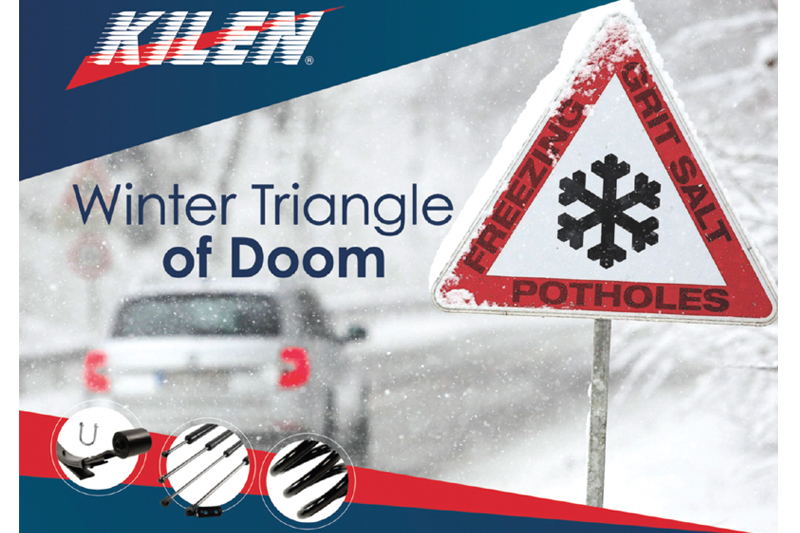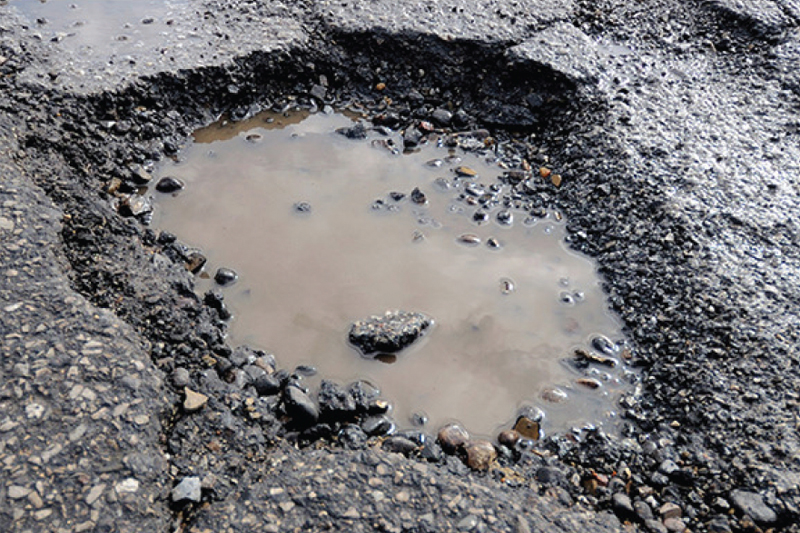
The UK is currently in the middle of a pothole epidemic, according to Kilen, with pothole-related breakdowns at a three-year high, and councils paying millions in road compensation claims last year. While drivers despair at the state of the UK’s pockmarked roads, automotive professionals know that potholes lead to broken coil springs and increased revenue.
They develop when water seeps into the road surface, then freezes and expands, creating a void under the tarmac. Traffic causes the tarmac to collapse into the void, creating a pothole.
Pothole impacts cause microscopic cracks and progressively weaken the spring material with each compression or shock impact (fatigue).
Kilen claimed it improves fatigue strength via shot peening and stress relieving, which, together with the addition of a zinc phosphate coating, effectively reduces the risk of premature failure. Pothole impacts add significantly to spring fatigue, making breakage more likely.

Other ‘factors’
What’s more, freezing temperatures generate problems; the tensile strength of a spring can also be affected by the cold, making it more brittle and increasing the likelihood of breakage. The risk of breakage is significantly greater for “budget” springs using lower-quality steel and without the previously mentioned quality measures employed by premium spring manufacturers, claimed Kilen.

Grit salt forms an abrasive paste when mixed with surface water, grinding the protective paint off the spring. Microscopic cracks become fully exposed to the elements, increasing the risk of failure, especially in cold weather.
Potholes will continue to support sales growth in the spring market for many years to come, according to Kilen, and a well maintained stock profile will win the sale! Marathon Warehouse Distribution has “huge stocks” of Kilen coil, leaf and gas springs, all of which are available for fast, frequent same-day delivery.

Why Kilen?
Kilen springs, produced in Sweden, are designed to withstand the harshest conditions of a Scandinavian winter. Each Kilen spring is made from the “highest quality, specialist spring-steel”, and protected from corrosion using the “galvanic protection method” of zinc phosphating, before being powder-coated with epoxy resin to provide additional protection.








